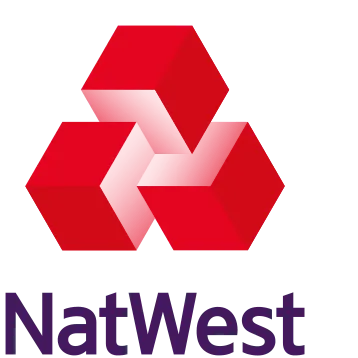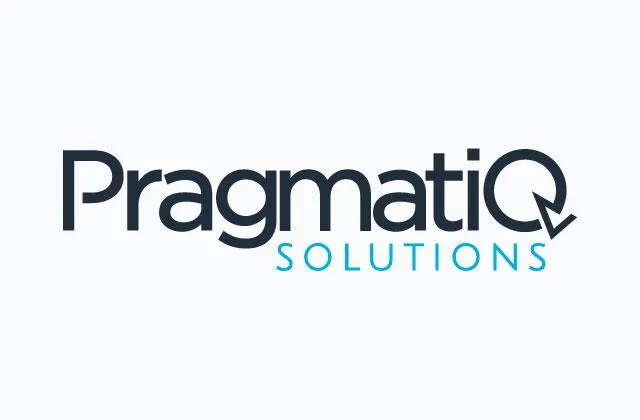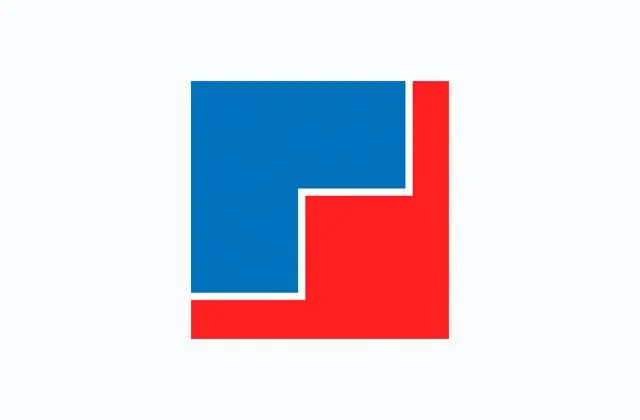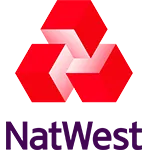Case Studies
We work with the world's most innovative organisations
Case Studies
We work with the world's most innovative organisations
Learn how clients have benefitted from working with TeamLytica

Natwest
Team working in the banking sector

Pragmatiq
Teamwork and scaling
companies

Fire Events
Building teamwork in other companies

UK University Services
New teams and international team working

Planet Wise
Improving teamwork in an international environment

Arthur Ellis
Stress management and team wellbeing

Team ADL
Improving remote teams

Soccer Assist
Improving cohesion in the team behind sporting success
Accredited Coaches
Only accredited coaches can use TeamLytica.
The training and support you get will ensure you have the right level of knowledge to be able to coach teams as well as individuals. Then our reporting platform gives you a strong structure, providing you with a foundation that you can build on with your own knowledge and experience.
Find out more about our solution:
Keep up to date with our
News & Blogs

Startups
Startups
Boosting teamwork and performance to drive growth and traction.
Startups face unique managerial challenges. Not only do leaders have to contend with a relative lack of structure, but they also need to know how to manage people who might not expect the firm to succeed.
Startups are, by their nature, risky endeavours. Until you have an established business, you don’t know whether your model will work.
Leading a startup is fraught with challenges. Often, startups attract talented people to work for them, but it can sometimes be difficult to align them with the company vision.
The workload at startups is also notoriously high. Managers need to have the skills to get people to work long hours, including weekends if necessary, without causing resentment or burnout. It’s a rare leadership skill but one that is often necessary.
TeamLytica is a powerful tool that startups can use to identify and resolve team management issues. The solution is based around the KITE survey, a 54-question quiz that gets at the heart of the management issues facing the team so that the CEO or their executives can resolve them. Employees at your startup provide confidential answers to the questions, and then the TeamLytica platform automatically generates a detailed 28-page report, offering actionable insights. You’re then free to browse these insights at your leisure and arrange changes in management practices to resolve issues.
TeamLytica provides a team summary, detailing your average performance over nine critical domains. These include leadership, delivery, trust, capability, energy, harmony, stakeholders, accountability and resilience.
Using KITE – K – Knowledge, I – Insights, T – Training, E – Empowerment.
Take leadership, for instance. In the KITE survey, leadership is a measure of what people in your startup think of the quality of team leadership. You’ll learn about the degree to which they favour the motivation, style, approach and experience of the leaders in your organisation.
Resilience is another critical factor that startups must consider – or the ability to continue to deliver a high-quality product even when under pressure from clients. Teams that can continue to work cohesively in high-stress environments are often able to generate great results.
We aim to do things a little differently at TeamLytica – we’re here to help.
Startup bosses aren’t always the most experienced managers. Some, for instance, are first-time entrepreneurs with no management experience in other industries. TeamLytica, therefore, provides immediate support and recommendations for changes in management practices based on team feedback.
For startups with multiple teams, TeamLytica also provides powerful comparative tools. You’re able to identify factors that could explain why some teams perform better than others and gain valuable managerial insight. The dashboard allows you to compare survey results from various groups in your company, showing you the dimensions in which they excel and those in which they struggle.
Finally, TeamLytica provides essential tools that help you avoid losing talented employees, critical for the long-term success of your enterprise. The system allows you to import key performance indicators and correlate them with KITE measures of wellbeing. You can immediately discover high-performing but unhappy employees in your organisation, based on survey results.
Startup CEOs and managers need all the insights at their disposal to ensure that their teams function well. TeamLytica’s platform helps to build cohesion and trust in your emerging organisation.
Natwest
NatWest is a UK bank and part of the RBS Group in the UK and Worldwide. As part of it’s commitment to business startups, it has been successfully running the NatWest Accelerator programme. This is a free and managed service for startup and scale-up businesses that can access any of twelve hubs across the country.
The Problem
Natwest had recently parted company with Entrepreneurial Spark that had been running a startup programme for the bank over the last six yers. The Bank decided to take the operation in-house so it could improve and expand what it had to offer entrepreneurs.
The challenge for the new board and senior leaders was to break free of the constraints of traditional banking and its staid approach to banking. The senior team had to think, act and work differently in this every-changing and dynamic environment – to meet the needs of both the 100s of entrepreneurs coming through the doors but also, the demands of the bank and all it’s restrictions and methods of operation.
The Solution
TeamLytica had been part of the entrepreneur programme run by the bank and was asked to provide an analysis of the recently set-up board of the new group.
The results proved interesting and useful to the management team. They quickly used the data to explore their strengths and, as importantly, what they could improve upon. This looked at both internal team work and what they were able to offer and deliver to the 12 hubs around the country.


"TeamLytica’s software has been identified as a valuable tool to check the effectiveness of newly combined teams in the Bank. We are using it to review their progress as the staff become more integrated."
Steve Chown
Entrepreneurial Innovation Manager, NatWest Bank
Culture Change and Empowerment
The senior team were clearly competent at what they did and were able to deliver I high level of professionalism and service to their client base.
What also became apparent was the teams ability to just keep battling through issues rather than pausing and coming up with longer-term solutions rather than knee-jerk reaction.
It was also clear the team were in a honeymoon period where they were in the ‘forming’ phase of the team. Everyone was nice to each other and the usual infighting and politics had yet to befall them.
The TeamLytica tool provided valuable insights that the team were able to build on – the numerous and in-depth strengths of the team have provided a solid foundation for future development while allowing the team time to address some of the challenges it faces both as a new entity and with the usual growing pains of a new operation.
Pragmatiq
PragmatiQ Solutions specialises in designing and implementing bespoke
CRM
(Customer Relationship Management) systems for our customers. As a result, businesses benefit from increased sales, and improved management insight resulting in data-driven decision-making and a system that is fit for your organisation today & in the years to come.
We leverage the latest Microsoft technology, Dynamics 365, and with our commercial experience & technical expertise, we’ll work with you to develop a solution that is fit for purpose and tailored to your business
The Problem
PragmatiQ are a fast-growing company based in Milton Keynes. They a wide mix of employees within the tech sector and work with clients that have high expectations and short time scales. Data management is critical to their clients therefore a level of trust and service delivery is required on every contract Pressure is high to ensure the client gets what they need when they need it.
Teamwork is critical across the business and this can be a challenge as colleagues work in silos on their specific client projects.
The management team knew what they wanted to achieve – cross team working, sharing of expertise and teams being able to support each other when client pressures required it for the benefit of the company as a whole.
The challenge was how to reveal this to the employees in such a way as to make it in their interest to help colleagues who were not involved in their own projects and clients.

The Solution
PragmatiQ opted for the full reports and were able to complete these online at a time to suit them. The dashboard was simple to use and has enabled the teams to view not only their own reports but those of peer teams as well. The comparison features have allowed for lots of data interrogation – which these techies love.
"It’s a simple and straightforward process – our tech team were impressed with the results and dashboard that the questionnaires generated."
Stuart Goldwater
Better understanding, building trust – results improving
Teams and managers are much more interested in what their colleagues are doing. They are actively looking for areas within the survey that others excel at and they can learn from. Cross team working has moved to a whole new level as teams understand that they can gain greater knowledge working on more diverse projects.
Fire Events
Fire Events isn’t just another team-building and corporate events company. Every event is absolutely customized to your requirements. Whatever works for you. Wherever you want to be. Whatever you can afford. Nothing is too much trouble and we’re committed to making your event a huge success.
Based in the Yorkshire Dales, Fire-Events has worked with some of the largest companies in the UK delivering exceptional team building and events. They pride themselves on understanding client needs, designing an appropriate program and then delivering exactly what’s needed to help the client achieve their aims.
The Problem
Stuart had been getting disillusioned with the same old psychometric profiling tool that companies have been using for years. They had their place but nothing really matched his requirements of delivering a truly team solution – as opposed to individual results merged together.
One particular client needed to compare lots of teams and try to get the best to share what they did well with their struggling peers.
Stuart knew that his existing profiling tools would not suffice and so began his quest to find a solution.

The Solution
PragmatiQ opted for the full reports and were able to complete these online at a time to suit them. The dashboard was simple to use and has enabled the teams to view not only their own reports but those of peer teams as well. The comparison features have allowed for lots of data interrogation – which these techies love.
"We love it. Our aim is to encourage all our clients to use the TeamLytica questionnaire and dashboard as we can see how powerful it can be for them."
Stuart Goldwater
Better understanding, building trust – results improving
Teams and managers are much more interested in what their colleagues are doing. They are actively looking for areas within the survey that others excel at and they can learn from. Cross team working has moved to a whole new level as teams understand that they can gain greater knowledge working on more diverse projects.
UK University Services
UK University Services is a trading name of UNI4U Ltd, a UK-based company focused on matching students with their ideal UK university courses.
Their services are focused on delivering their vision of a world where international students have access to personalised, impartial advice on universities, are able to integrate and have a truly British experience while studying in the UK, and are supported throughout their UK higher education journey and beyond.
Their team is made up of professionals with a wide range of experience in the UK higher education sector and they work in partnership with a range of organisations!
The Problem
The team is based in the UK and overseas, especially in China. Management has to get to grips with timezones, culture and different working practices while still delivering a great service to their client base. The team is in separate countries but, many have never actually met each other before thus hindering effective communication and trust within the team.
Management was keen to improve all aspects of teamwork but didn’t know how or where to start. They needed a line-in-the-sand marker so everyone knew where they were at so improvements could be sought and delivered.

The Solution
UK University Services took up the full team report from the beginning and were please they did. Actions were quickly established and prioritised based on the overall feedback from the teams,
What was really useful were the open text comments which enabled team members to expand upon their thoughts and aims in a constructive but confidential way.
The senior leadership team used these comments to address issues and challenges across the teams which had previously been hidden from them.
The Results
The first outcome was the obvious need to get the teams together on a regular basis monthly meetings have now been diarised. These meetings have two purposes and are planned as such. The first is around work – with the usual issues, challenges. The second round getting to know each other. One of the survey results indicated high levels of competence throughout the teams that were not known about. The sharing and seeking out of best practice has now become the norm. Team members, managers, and clients have greatly benefited from this.
Planet Wise
The Company
Planet Wise are travel safety specialists that deliver solutions to clients who send staff overseas on company business. It delivers
duty-of-care best practice that helps protect the company and the traveller.
Planet Wise has been delivering international travel safety solutions since 2003. Its remit is to offer practical and relevant solutions to both companies and employees who travel internationally. Its services are tiered to ensure the correct level of training and support is delivered.
They assess travellers based on their experience level, the destinations they visit, or the risk to the business. Whether you take just one of our services or the full suite, they will help implement a robust audit trail thus allowing you to demonstrate your duty of care to travelling staff.
The Problem
Being a training company, PlanetWise has a great group of employees who work across a wide selection of clients. They tend to work in silos with their respective clients and projects. They rarely come together as a complete team. Building a stronger community between these trainers and support staff was highlighted as a development need during their annual review process.
Management was keen to improve all aspects of teamwork but didn’t know how or where to start. They needed a line-in-the-sand marker so everyone knew where they were at so improvements could be sought and delivered.

The Solution
Initially PlanetWise used the free summary report to gain a basic understanding of the teams cohesion. It was quickly apparent that development work and investment was required in three of four key areas. To the manager, upgrading to the full report seemed to be a good investment and proved to be just that. She was able to focus on the areas that really mattered to the team and make some quick wins for the benefit of the team, the company and most importantly, clients and their courses.
The Results
It’s early days but, progress has been made. The team, manager and senior leaders used the reports to highlight immediate action areas, those that would take a little longer to solve and those that were just a nice-to-have. Once completed, work-groups were created that could create their own solutions to the problems with timescales budgets and delegated authorisation to complete the work.
The teams have felt empowered by the process and have all spoken out that it has raised awareness of issues on how the teams work together and what success looks like – along with action plans and pathways to get there.
Arthur Ellis
Whether it’s the training we deliver into organisations across the country, the products on our shop or our 1:1 service for adults…all our work is aimed at helping people proactively cope, manage and recover from mental ill health.
With a huge amount of children unable to access meaningful, practical emotional support, our training, products and 1:1 adult support provides funds to supply children and young people with a free 1:1 service to support their mental health.
We are building a self-sufficient emotional support service for the 110,000 children who are currently unable to access support.
The Problem
The Arthur Ellis teams work with both corporate clients and young vulnerable people. contact. This concern revolved around the effectiveness of their communication as the individuals didn’t really know each other as people.
Management was keen to improve all aspects of teamwork but didn’t know how or where to start. They needed a line-in-the-sand marker so everyone knew where they were at so improvements could be sought and delivered.

The Solution
The ADL teams completed their surveys online – what one manager called ‘a really simple process’ – and then delved into the results. Given the platform is online, initial and ongoing access was straightforward. Once the reports had been compiled, managers organized group Skype calls to take each team through their results. Everyone was emailed a pdf copy direct from the platform for their own reading and records.
Better understanding, building trust – results improving
The first outcome was the obvious need to get the teams together on a regular basis. monthly meetings have now been diarised. These meetings have two purposes and are planned as such. The first is around work – with the usual issues, challenges. The second round getting to know each other. One of the survey results indicated high levels of competence throughout the teams that were not known about. The sharing and seeking out of best practice has now become the norm. Team members, managers, and clients have greatly benefited from this.
TeamADL is a UK-based organization that specializes in the Special Needs and Disability Services sector for young people and vulnerable adults.
They work with a wide variety of schools and local authorities across the UK. Their services include online and face-to-face consulting and a full range of training courses to help special needs practitioners in their challenging roles.
They also offer a selection of resources such as planning tools to help in mental health support, online learning and career advice for those working within this sector.
The Problem
The team has been recruited across the country and rarely has time to meet or work directly with each other. The senior management team had become concerned over the disparate nature of the team and the knock-on effect of lack of regular face-to-face contact. This concern revolved around the effectiveness of their communication as the individuals didn’t really know each other as people.
Management was keen to improve all aspects of teamwork but didn’t know how or where to start. They needed a line-in-the-sand marker so everyone knew where they were at so improvements could be sought and delivered.
"The team reports have really helped our team and given our senior leaders the knowledge we’ve needed to make effective changes to the way we work and manage."
Anita Devi
Director TeamWorkADL
Team ADL

The Solution
The ADL teams completed their surveys online – what one manager called ‘a really simple process’ – and then delved into the results. Given the platform is online, initial and ongoing access was straightforward. Once the reports had been compiled, managers organized group Skype calls to take each team through their results. Everyone was emailed a PDF copy directly from the platform for their own reading and records.
Better understanding, building trust – results improving
The first outcome was the obvious need to get the teams together on a regular basis. monthly meetings have now been diarised. These meetings have two purposes and are planned as such. The first is around work – with the usual issues and challenges. The second round getting to know each other. One of the survey results indicated high levels of competence throughout the teams that were not known about. The sharing and seeking out of best practices has now become the norm. Team members, managers, and clients have greatly benefited from this.
Building Teamwork
Soccer Assist helps and supports aspiring sports students through international scholarships.
Scholarships are awarded, and provide a discount on tuition fees, to exceptional student-athletes who demonstrate excellence in their sport as well as their academics. A scholarship works on a percentage basis, so the budget of the athletics department will determine how much can be allocated per student-athlete.
The company offers placements in the USA to aspiring young athletes and both male and female students who show great potential in playing soccer.
The Problem
It company has been running for almost four years and over that time it has steadily grown. The challenge has been to find and retain good staff that fit within the culture of the business and are good at what they do. Building great teamwork has come naturally to this young business but, they are always keen to learn more.
"The irony is not lost on us that we recruit and place the next generation of sports stars who all have to excel in teams. The TeamLytica platform has helped us get to a place where we’re proud of our own team performances."
Tyrelle McLeod-Bentley
Director – Soccer Assist
Soccer Assist

The Solution
The company approached TeamLytica to address these needs and after a brief test of the free report, quickly decided to upgrade to the full document. The management team have used the report as the basis for a number of initiatives. These include regular informal chats about how the team works and functions together. Training on how to give and receive effective feedback – something that they are great at while playing sport but, less effective in the office.
Teamlytica can support your team
Get in touch to discuss your company needs:












